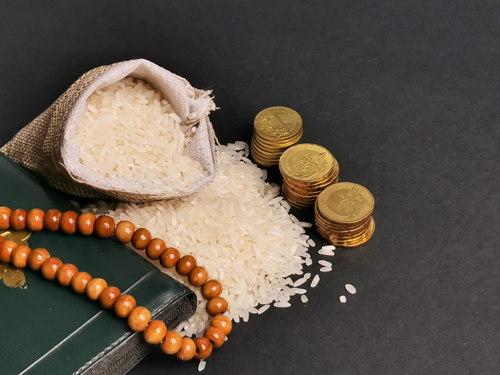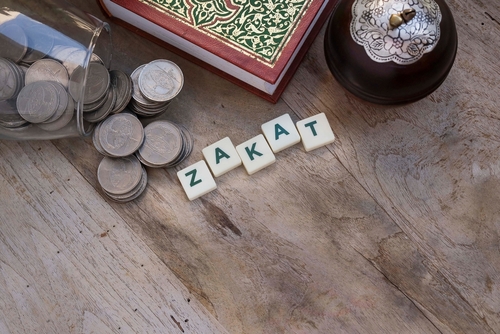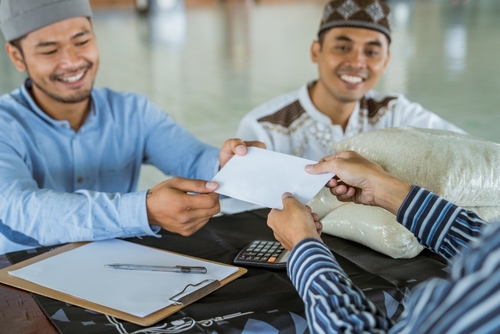Based on the Quran surah At-Taubah verse 60, there are eight groups of people who deserve to receive zakat. The eight groups are the faqr, the poor, amil zakat, the converts, riqab, fi sabilillah, ibnusabil, including gharim or people who are in debt. However, not all gharim or people who are in debt deserve to receive zakat. So, what are the criteria for gharim who deserve to receive zakat? Here is the explanation.
Gharim Explanation
A ghariim (with a long ra) is a person who owes debt, sometimes it is also used to refer to a person who has a debt. Meanwhile, gharimin are those who have debts and are unable to pay their debts because they have fallen into poverty.
Also read: Bolehkah Pembayaran Zakat Dicicil? Ini Penjelasannya
On the other hand, according to the great Islamic scholar, Mujahid, a gharim is a person whose property was washed away by flash floods, a person whose property was burned, or a person who has no property and then he/she owes it to meet his/her basic needs.
Based on the explanation above, not everyone who is owing debts is included in the gharim category who deserve to receive zakat.

Criteria for Gharim Who Deserve to Receive Zakat
Why does gharim deserve to receive zakat? Because, his/her position is the same as that of the poor who are unable to meet their emergency needs.
Imam Malik, Imam Shafii, and Imam Ahmad divided gharim into two categories. First, the person who owes it to himself. Second, people who owe it to the public or the public at large.
For the first category, the criterion is a person who owes money to provide for the basic necessities of his/her life, and he/she has no property to repay the debt. Even if the person has property, it is only enough to support his/her basic daily needs.
Thus, if a person is in debt but he/she still has more property than basic needs, such as land, a second house, property, and vehicles outside of basic needs, then he/she does not belong to the gharim group.
Also read: Top Brand Award 2022: Dompet Dhuafa Badan Amal dan Zakat Terbaik di Mata Masyarakat

The second category of gharim is someone who owes it for the benefit of the public or the people. For example, a person owes money to build an educational institution with non-profit social purposes, build an orphan dormitory, and so on.
According to the scholars, the first category of gharim includes people who deserve to receive zakat on the condition that they do not have more property than basic necessities to pay debts. In this regard, Sheikh Yusuf al-Qaradawi supported it.
Furthermore, the following are the criteria for gharim who deserve to receive zakat, including:
- A person who requires property to repay debts made for the purpose of maslahat.
- The reason for indebtedness is not in order to do bad to God.
- The debt is due
Also read: Ayat Al-Quran Tentang Zakat yang Bergandengan dengan Perintah Shalat
Zakat Distribution to Gharim
Quoting Jurnal Ekonomi Syariah EQUILIBRIUM, the distribution of zakat to the gharim group in this era is divided into four parts, including:
- To help those who are experiencing bankruptcy
- To improve the ability of business actors whose working capital is from loans
- To repay the debt of someone who has fallen into poverty
- To train small and medium-sized business actors to be able to run their business, so that it is not easy to fall into bankruptcy
- To reduce the burden on a country or a poor class of people
For the friends who want to donate zakat, but still have no idea about where to channel it, you can mandate it through Dompet Dhuafa. As a national Amil Zakat Institution (LAZ), Dompet Dhuafa has a legality permit from the Ministry of Religious Affairs (Kemenag).
The kindness funds that you channel through Dompet Dhuafa will be managed professionally and trusted, and will be used for society empowerment programs that stand on five main pillars, namely education, health, economy, social, as well as da’wah and culture.



